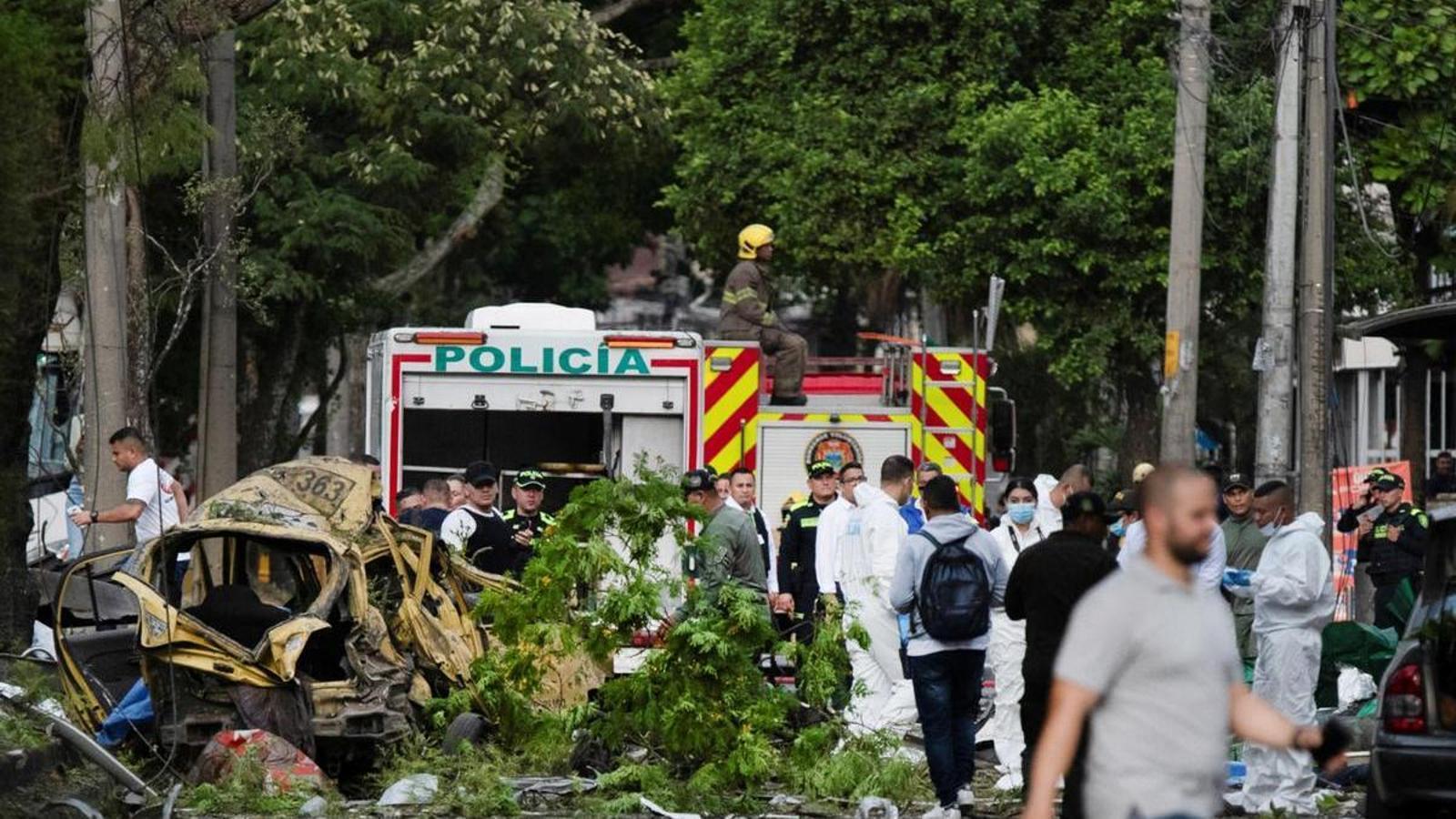Two deadly bomb attacks rock Colombia
There are at least 19 dead and seventy wounded, and President Petro points to the main dissident group of the FARC.

BarcelonaColombia has been shaken by two attacks targeting a police helicopter in Antioquia and a military airbase in Cali, which have left at least 18 dead and dozens injured and have put one of the main dissidents of the disappeared FARC, the Central General Staff (EMC), identified as responsible. The country's president, Gustavo Petro, described the day as a "day of death" and did not hesitate to describe the events as "terrorist reactions" against his government's offensive. Currently, there are two arrests for the attack in Cali.
The first attack occurred in El Chispero, a rural area of Amalfi, in the department of Antioquia, where thirteen anti-narcotics police officers died after an attack on the helicopter in which they were traveling for a search operation.
Hours later in Cali, capital of the department of Valle del Cauca and the third most populous city in Colombia, a truck loaded with explosives was detonated near the Marco Fidel Suárez Military Aviation School, where members of the Colombian Air Force are trained. This second attack left six dead and another 71 injured, all of them civilians passing by. The explosion caused massive destruction on a busy avenue lined with businesses in Cali, where the airbase targeted by the attack is located.
Petro has attributed the attack on the police helicopter at the EMC (Mexico City Municipality) to the government and, following the attack in Cali, has announced his intention to declare this organization and others such as the Second Marquetalia (also a dissident group of the old guerrilla group) and the Gulf Clan as terrorist groups. "They must be considered terrorist organizations that can be pursued anywhere on the planet," the president stressed, adding that they are all under the command of the Junta del Narco (the Drug Junta), "which operates as an international confederation of mafias."
"Colombia deserves to live in peace. What happened today in Cali in front of the Marco Fidel Suárez air base is a cowardly and criminal act that we absolutely reject," added Vice President Francia Márquez. The attacks are the most serious since the ELN guerrilla attack in 2019 that killed 21 military cadets in Bogotá and highlight the increase in violence in the country and the weak balance of the peace agreement with the FARC signed in 2016A few weeks ago, the conservative presidential candidate Miguel Uribe died after being in a coma for months. after being shot at a political rally.
Government Measures
Petro has traveled to Cali with the military and police leadership and is preparing a decree to declare a "state of internal unrest." This is an exceptional measure to address serious disturbances of public order that jeopardize state security and citizen coexistence.
"This attack constitutes a direct attack on human life and dignity and a clear violation of international humanitarian law, which absolutely prohibits attacks against civilians," said Ombudsman Iris Marín. Regarding the attack on the police helicopter, Marín noted that Amalfi is among the municipalities in Antioquia that have been a source of concern for years due to the presence of various armed groups linked to drug trafficking and smuggling. These groups include the ELN guerrilla group, dissident factions of the FARC, and the Gulf Clan.
Reactions
In the face of worsening security in the country, various political sectors have demanded that the government take decisive action against illegal armed groups. Former President Iván Duque has said that "Colombia can never allow terrorism to return." "Today, more than ever, we need the presence of authority and a government that is not permissive toward violence," Duque added.
His predecessor, Juan Manuel Santos, has warned that it is "urgent to implement an effective security policy" and has emphasized that the armed forces "need leadership, budget, and support."
The Office of the United Nations High Commissioner for Human Rights in Colombia has also spoken out to condemn the "indiscriminate attack" in Cali: "We call on the state to assist the victims and advance the relevant searches to clarify the facts and guarantee
